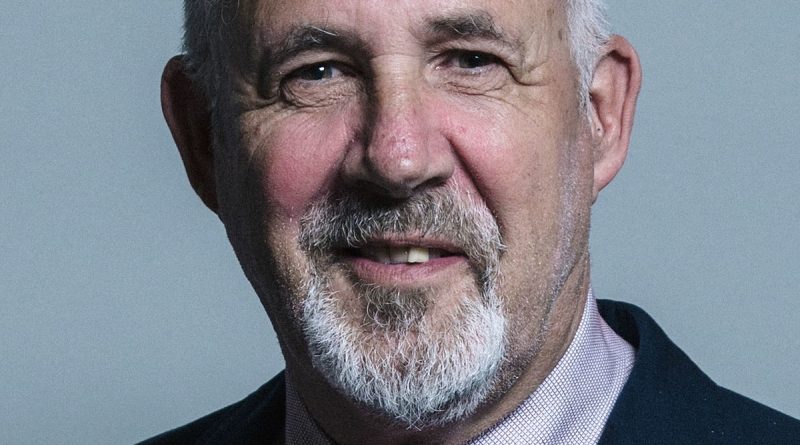Jon Trickett – 2023 Speech on Brownfield Development and the Green Belt
The speech made by Jon Trickett, the Labour MP for Hemsworth, in Westminster Hall, the House of Commons on 9 February 2023.
I think it is the second time this week that you have guided us through a Westminster Hall debate that I have attended, Ms Fovargue. I congratulate the right hon. Member for Aldridge-Brownhills (Wendy Morton) on securing the debate and on her comments, which resonated with some of the problems we face in my area.
Obviously the country has a housing problem as our population increases and household size falls, but it seems to me that, as the right hon. Lady just said, a large amount of brownfield land in the country remains undeveloped. There are also large numbers of planning consents in land banks held by developers that are sitting on their assets and allowing them to grow while seeking further planning consents, on which they will probably sit as well.
It is time to think carefully about our green belt. I represent a rural community of 23 separate villages. It is important for Members who represent urban communities to understand the importance of the independence of a local community, its local identity and local culture. Ribbon development, which gradually takes one field, then another and then another, results in the bringing together of communities that historically were often rivals, or certainly have different identities that they want to retain.
Take the village that I live in, which is a Quaker village in a mining community. We are now two fields away from Pontefract. If we go back far enough—back to the civil war—we stood for Parliament and Pontefract stood for the Crown. That is some time in the past now, but we get the point. I can look from the top of our village down into Pontefract; it is creeping closer and closer, and there are plans to develop more of those fields. The village I live in is a rural community, with its own identity. We do not want to be part of Pontefract, and the same applies to all the other 22 villages that I represent.
At the present time, we have three developments, all in the green belt and all for housing. I want to say two things about that: first, it is lazy for planners to simply draw lines on maps that look tidy without first having thought about the social, economic and environmental consequences. Secondly, to some extent, it is greedy of developers to want green-belt land, which is often easier to develop than brownfield land, particularly in a mining community such as mine where much of the brownfield land has been polluted and needs to be cleaned up. There are three sites in my constituency, all in the green belt; a lot of people want to speak, so I am not going to go into detail, but Springvale Rise, Highfield Road and Huntwick Grange are all under threat of development at the moment.
The first thing to say about my constituency is that these villages were mining communities. The coal was taken out by rail, so roads that would carry large amounts of traffic were never built, because people lived in the village where they worked, and they went to the local pub, club, football club or whatever social activity, and to the local school. Our roads are not built to carry the amount of traffic that is being generated by increasing numbers of vehicles, particularly now that there is no work in our communities either, but the highways engineers seem prepared to approve almost anything as long as it is going to deliver housing targets that have been imposed from above.
I was so pleased to hear our leader, my right hon. and learned Friend the Member for Holborn and St Pancras (Keir Starmer), say that he is going to bring back control for local communities, and I think some rhetoric about the same principle has been heard from the Government as well. If we are going to develop villages that need development, that should be done from the bottom up, not from the top down—that is my central point. Green-belt incursions should be a last resort, not the easy resort. I am asking for a presumption against green-belt land and in favour of brownfield land, and I think the Government have said that there will be one.
Does the Minister have time to reply, or else to write to us, about the following point? The Government, the Prime Minister and the Secretary of State have made statements about preferring brownfield development, and a “Dear colleague” letter has come from the Secretary of State that indicates—it uses the present tense, rather than the future tense—that he has issued orders about preferring to move away from green-belt development. Now, an inspector is looking at our local authority’s plans, and I have spoken at those hearings. That inspector started her inspection prior to the new legislation that the right hon. Member for Aldridge-Brownhills has referred to, and prior to the issuing of that “Dear colleague” letter and, apparently, some changes to the way in which the planning frameworks operate. She is unclear whether she will be applying the new rules as they come into place, or whether she is now obliged to work according to rules that are no longer extant, or will no longer be very shortly. Some guidance on that question would be helpful.
The green belt is very important. I want to focus on one single aspect of it, or maybe two, because other Members will develop other arguments in favour of it. First, I represent many old miners. If a person lives in poverty and perhaps has a bad chest, as many of those old men do, they should not be deprived of access to the countryside, but the more we build up, the fewer amenities will be available. That is what is happening throughout all the villages I represent, every one of which was a mining village. The loss of amenities matters a lot: they should be not for just the middle classes, but for everybody, and yet we are seeing incursions that I think are a disgrace.
The main point that I want to finish on—it will take me one or two seconds—is that there is no obligation on planners, developers, councils or anybody else to do an analysis of the ecological impact of a development before it has been approved. In my view, that is completely wrong.
We have one development that could be 4,000 or 5,000 houses, if they get away with it. I commissioned, because nobody else did, an ecological survey by the reputable West Yorkshire Ecological Service. That survey discovered on the site to be developed 26 or 28 separate species of birds, mammals or other forms of life that are protected by the Wildlife and Countryside Act 1981, or birds that are on the Red List. Nobody had done that work, yet all of these species are protected, as far as I can see. There ought to be no development that destroys their habitats, yet that is what is being threatened.
It is a curious situation, because there is legal protection, but no attempt was made to identify which species were threatened by the development. It seems to me that the Minister could helpfully go away to the Department and discuss that point. Every time we build on green belt, rare species of flora and fauna are threatened. The land in our case has never been developed; it is ancient woodland that has never been touched, ever, but is is now under threat from the development at Huntwick Grange in Featherstone. Will the Minister reflect on the ecological impact?
Only a couple of weeks ago, when the United Nations discussed biodiversity, the Secretary-General, in a very striking phase, said that humanity is in danger of becoming
“a weapon of mass extinction.”
What are we doing? We are building on sites where there are species that are under threat, and that may well become extinct in due course. Some species now have a very fragile hold on existence. Can we really say that our planning policies should just ignore threats to our biodiversity? I think not.


